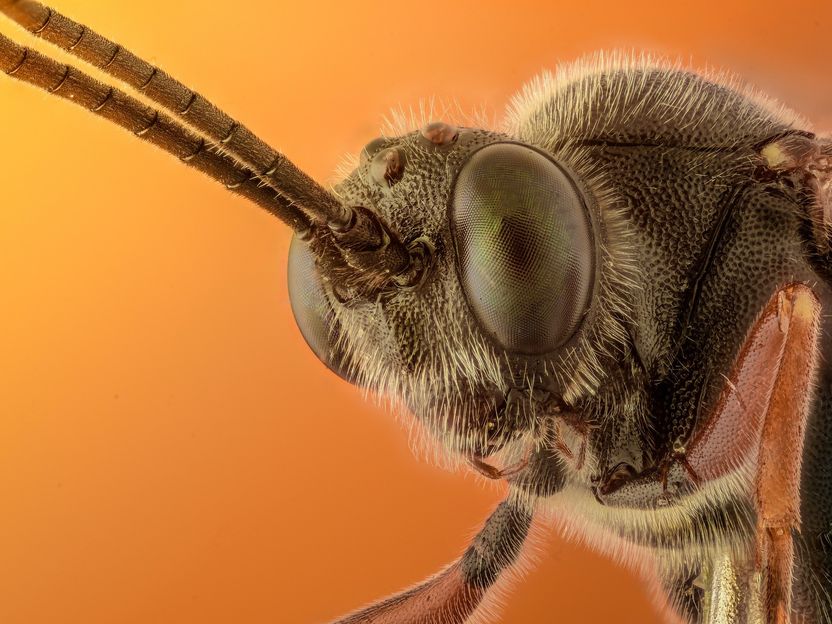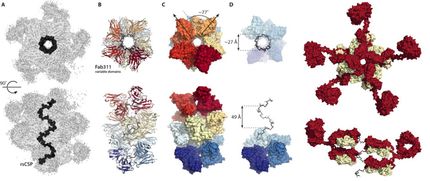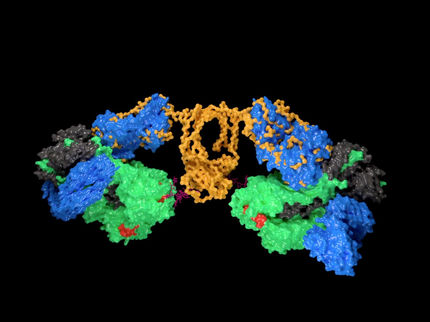Drug that could aid in vaccines activates innate immune system in novel way
A new drug with the potential to aid in vaccine development has been identified by researchers at UT Southwestern Medical Center.
"The drug we made appears safe, and boosts immunity in mice. Therefore, the drug, which is straightforward to synthesize and to couple to antigens that induce an immune response, may prove useful in the generation of vaccines," said Dr. Bruce Beutler, Director of UT Southwestern's Center for the Genetics of Host Defense.
The study builds on work that earned Dr. Beutler a share of the 2011 Nobel Prize in Physiology or Medicine for his use of classic genetics approaches to identify the mammalian LPS (lipopolysaccharide) receptor TLR4, which engages LPS particles on Gram-negative bacteria and initiates an immune response. In so doing, Dr. Beutler demonstrated that the mammalian Toll-like receptors (TLRs) sense microbial infections and launch the body's immune response.
"This is the first drug that is designed to activate the TLR4/MD-2 complex, which normally senses bacterial LPS. The results show that the drug elicits the same shape change in TLR4/MD-2 as LPS does, but achieves this change by binding to different contact points on the surface of the protein," Dr. Beutler said.
The researchers screened about 90,000 compounds for their ability to activate production of tumor necrosis factor alpha (TNFα), a cell signaling protein involved in inflammation. Two compounds with immune-cell stimulating activity were identified, the strongest of which was named Neoseptin-1. Through chemical modifications, the researchers created the more potent Neoseptin-3.
Dr. Beutler noted that the study was a multidisciplinary collaboration between his genetics laboratory; the structural biology laboratory of Dr. Hong Zhang, Associate Professor of Biochemistry and Biophysics at UT Southwestern; and chemistry and genetics laboratories at The Scripps Research Institute, where Dr. Beutler worked prior to returning to UT Southwestern.
By studying how the drug becomes attached to the TLR4 receptor using X-ray crystallography, we were able to determine that unlike any other drug target interactions studied, this one involves two drug molecules binding to each other noncovalently (without a chemical bond between the two molecules' electrons) at the active site of the target protein," he said.
In mouse cell studies, Neoseptin-3 touched off an immune response similar to that caused by LPS. But it did so by having contact with different amino acids in the TLR4 and MD-2 proteins. In addition to being a chemically very different molecule from LPS, Neoseptin-3 also generated a milder immune response, he said. In contrast, LPS induces a strong response that can be toxic.
Original publication
Ying Wang, Lijing Su, Matthew D. Morin, Brian T. Jones, Landon R. Whitby, Murali M. R. P. Surakattula, Hua Huang, Hexin Shi, Jin Huk Choi, Kuan-wen Wang, Eva Marie Y. Moresco, Michael Berger, Xiaoming Zhan, Hong Zhang, Dale L. Boger, and Bruce Beutler; "TLR4/MD-2 activation by a synthetic agonist with no similarity to LPS"; PNAS; 2016
Most read news
Original publication
Ying Wang, Lijing Su, Matthew D. Morin, Brian T. Jones, Landon R. Whitby, Murali M. R. P. Surakattula, Hua Huang, Hexin Shi, Jin Huk Choi, Kuan-wen Wang, Eva Marie Y. Moresco, Michael Berger, Xiaoming Zhan, Hong Zhang, Dale L. Boger, and Bruce Beutler; "TLR4/MD-2 activation by a synthetic agonist with no similarity to LPS"; PNAS; 2016
Organizations
Other news from the department science

Get the life science industry in your inbox
By submitting this form you agree that LUMITOS AG will send you the newsletter(s) selected above by email. Your data will not be passed on to third parties. Your data will be stored and processed in accordance with our data protection regulations. LUMITOS may contact you by email for the purpose of advertising or market and opinion surveys. You can revoke your consent at any time without giving reasons to LUMITOS AG, Ernst-Augustin-Str. 2, 12489 Berlin, Germany or by e-mail at revoke@lumitos.com with effect for the future. In addition, each email contains a link to unsubscribe from the corresponding newsletter.
More news from our other portals
Last viewed contents
Nanomaterials: What are the environmental and health risks?

Insects’ sense of smell gives insight into better repellent design and drug screening






















































